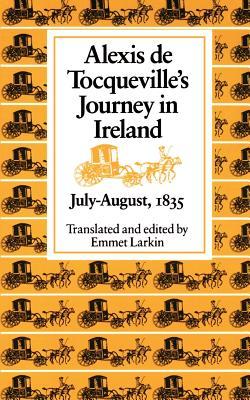Alexis de Tocqueville visited Ireland in the company of his good friend Gustave de Beaumont in July and August of 1835. At the time of his visit, Tocqueville had just acquired an international reputation with the publication of the first two volumes of his celebrated Democracy in America. His profound interest in the great transition from aristocracy to democracy then taking place in the western world including Ireland was given special point in his observations. Of equal interest to Tocqueville were the problem of poverty, the pace of religion in civil society, and the intriguing ambivalence of the Irish peasant toward the law. The notes on conversations, letters to family, and vivid descriptions Tocqueville wrote on his visit to Ireland bring the problems of pre- and early-famine Ireland into sharp focus.
Tocqueville was welcome everywhere, in the mansions of the Protestant bishops and in the simple homes of priests whom he accompanied on their rounds through their parishes. His visits to the poorhouse, the university, the sites of the Assizes and the Office of the Clerk of the Crown of Ireland are among the recorded visits and impressions of his journey. He noted the conditions of the towns and countryside, saw that people starved amid plenty and was told repeatedly that in Ireland the aristocracy made the problems and the poor sustained each other.
He recorded conversations in their entirety. He made clear notes on what he saw and heard, often noting his own reactions. The diary and the letters that he wrote to his family about his visit to Ireland provide a rare insight into one of the seminal minds of the nineteenth century.
This edition of his journal is perhaps the first serious scholarly effort to place Tocqueville's journey to Ireland in its proper intellectual, geographical, and historical context. The forty-seven episodes, with the exception of three, have been arranged in chronological order according to their occurrence. This volume includes a map of Irish roads originally produced in the atlas accompanying the "Second Report of the Railway Commissioners, Ireland, 1838."
